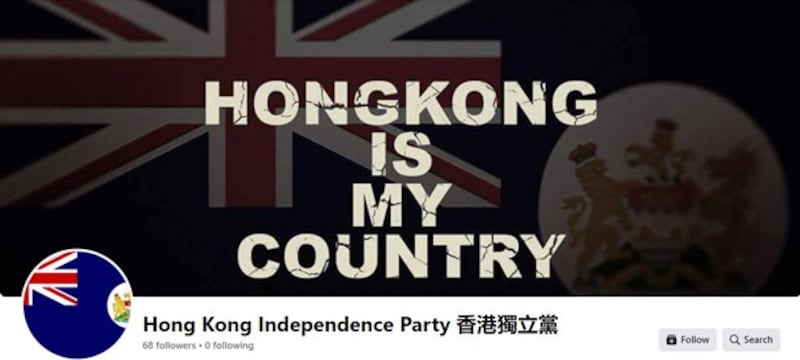A court in Hong Kong has handed a five-year jail term to a dual Portuguese national for "incitement to secession" after he headed a political party to campaign for independence that was registered in the United Kingdom.
Joseph John, also known as Wong Kin-chung, was the first European dual national to be convicted under Hong Kong's 2020 National Security Law, which applies to anyone of any nationality, anywhere in the world.
John, a Portuguese citizen who also holds a Hong Kong permanent identity card and is a resident of the United Kingdom, was jailed for 60 months by Judge Ernest Lin after being found guilty of "incitement to secession" for managing the Hong Kong Independence Party's social media accounts between July 2020 and November 2022.
Rights groups said John's sentence underlines the fact that anyone can be arrested, prosecuted and jailed under Hong Kong's security laws, regardless of their nationality or place of residence, on the basis of words and actions carried out overseas.
The prosecution accused John of "publishing, making available and/or continuing to make available statements and photos on Facebook, Twitter, Instagram and Telegram."
Judge Lin told the court that, regardless of whether the 42 posts were written by the defendant personally, they included elements of "resistance to the Hong Kong and Chinese governments," and had continued over a period of 28 months, which suggests they were planned rather than a form of emotional "venting."
"The defendant did not hesitate to distort history, demonize the Chinese government, and encourage the destruction of the Hong Kong Special Administrative Region and Chinese governments through political and even military means," Lin said.
"He also sought help from foreign governments, called on people who were prepared to sacrifice their lives to serve as righteous men, and to raise funds to hire mercenaries, seeking to overthrow the Hong Kong SAR and the Chinese government by force, and called for foreign coalition forces to march into Hong Kong," he said, accusing John's posts of "twisted logic and superficial slogans."

Lin said John's emigration from Hong Kong 10 years ago suggested he was loyal to other countries than China, and that his case was deemed "serious" under definitions given in the National Security Law.
'A dangerous precedent'
The London-based rights group Hong Kong Watch condemned the sentence, saying it "signals that dual and foreign nationals are at serious risk of imprisonment in Hong Kong under the National Security Law, and the new Safeguarding National Security Ordinance" passed last month.
With the passage of the new security law, known as Article 23, last month, convictions of dual and foreign nationals are an increasing risk, and likely to be more frequent and severe, the group warned, calling on European governments to condemn the sentence.
It said the case also carried implications for the case of British citizen Jimmy Lai, who is on day 58 of his national security trial for owning the now-defunct newspaper Apple Daily, the largest pro-democracy newspaper in Hong Kong, and for participating in pro-democracy activities.
"There is now a dangerous precedent for a dual national being convicted under the Hong Kong National Security Law," the group's Chief Executive Benedict Rogers said in a statement, adding that journalists, politicians and human rights groups are particularly at risk.
The U.S.-based Hong Kong Democracy Council commented via X that John’s crime “consisted of making social media posts for the obscure HK Independence Party."
It said 20 people have been sentenced so far under the National Security Law to a total of more than 67 years in prison, including nine sentenced to juvenile training centers.
Thousands more have been jailed or arrested on public order charges relating to recent protests, and under colonial-era sedition laws in an ongoing crackdown on public dissent and peaceful political opposition.
Former British colonial governor Chris Patten wrote in a recent op-ed that the latest national security law aims to "sever all contact between freedom advocates in the city and the outside world."
Writing in a March 29 commentary published to Project Syndicate, Patten said some of the offenses in the Safeguarding National Security Law are "so vaguely defined that they allow the authorities to detain virtually anyone they want on fabricated or absurd charges."
He said someone could be arrested "for keeping an old copy of the pro-democracy newspaper Apple Daily … and showing it to a friend in their own home."
Translated with additional reporting by Luisetta Mudie . Edited by Roseanne Gerin.
